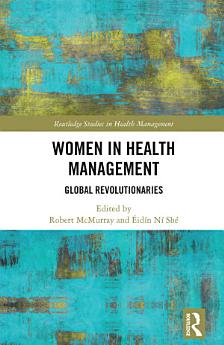Women in Health Management: Global Revolutionaries
About this ebook
This book contributes to the process of writing women back into our shared history and understanding of health and its management. Its chapters detail how women have been the main healers for communities across the globe for over four millennia. It considers the manner in which ‘wise women’ who used their knowledge of herbs, ritual and healing were excluded from emerging medical professions, while their good works were written over and written out of local histories through their marginalisation and repositioning. More positively, it brings to our attention inspiring women who have shaped the ways in which we develop and deliver health in its broadest sense. Drawing on the work of women from Kenya, Nigeria, Hawaii, Türkiye, USA, Ireland and the UK, and from disciplines that span medicine, social work, mental health, health promotion, occupational therapy, midwifery, pharmacology and traditional healing, the women considered in this volume advance our understanding of alternative ways of developing, delivering and managing health. This includes organising services for areas of neglected health (e.g. women’s health, health prevention, rural populations), tackling contentious health issues (e.g. female genital mutilation, management of mental disorders) and the care of health providers themselves (e.g. providing space for women to practice, managing the mental well-being of healthcare workers). This book also shows how the work of these women went beyond health management to influence political and societal change.
About the author
Robert McMurray is a Professor and Chair of Organisational Studies and the Associate Dean for Education at the Sheffield University Management School, UK.
Éidín Ní Shé is a Senior Lecturer at the RCSI Graduate School of Healthcare Management, Ireland.







